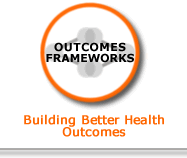| |
Activities to develop strong strategic leadership and partnership working for the health and work agenda should include health, employability and other relevant service providers and will contribute to improved links, pathways and processes for supporting individuals. This will in turn contribute to more consistent approaches, holistic, integrated and timely support for individuals with work-related health issues.
Rationale
Policy Note
Sources
Rationale
Developing strong strategic leadership and partnership working for health and wellbeing will contribute to improved and more integrated systems across service providers, and subsequently contribute to increased commitment and understanding across a range of partners and service providers in the health, work and wellbeing system.
Including work-related assessments as part of routine practice, and incorporating monitoring data and relevant outcomes within performance management systems will contribute to a shared understanding of the importance of work for health, and of partners own and others’ contributions to the health, work and wellbeing agenda. No highly processed evidence has been identified to date and this area requires further research and evaluation to test this assumption.
There is currently no highly processed evidence available that partnerships in public health lead to improved health outcomes.[1] However, in order to achieve an integrated, holistic approach to the support of individuals across the health and work continuum, collaborative working between service providers will be an essential component. For instance, commitment and coordinated action from all the players is crucial for successful vocational rehabilitation: especially important is communication between healthcare professionals, employers and workers, which should be initiated at an early stage of absence.[2]
Informed by reviews of effectiveness evidence, NICE public health guidance 19 Managing long-term sickness absence and incapacity for work sets out a set of generic principles and recommended actions to guide primary care services and employers.[3] This includes a recommendation that organisations commissioning services for individuals who are unemployed and claiming incapacity benefit or employment and support allowance should commission integrated programmes to help claimants enter or return to work (paid or unpaid).
Collaborative working, driven in part by strategic leadership, is essential to the success of Health Works. There is review level evidence (primarily in musculoskeletal conditions) that multi-disciplinary interventions that address health, personal and workplace factors, and that are linked to the workplace, can be effective and cost-effective for improving occupational outcomes, and there is moderate evidence that the use of collaborative case management approaches, including return to work coordinators, is effective and cost-effective for occupational outcomes.[2]
There is moderate review level evidence that personal advice and support, incorporating case management approaches, is an effective method of delivering employment services to clients with a disability or chronic illness, and that structured vocational rehabilitation interventions can improve work outcomes for claimants/beneficiaries in the early stages of Incapacity Benefit (or similar benefits).[2]
Scottish policy note:
Strategic leadership is being demonstrated in a number of areas of Health Works. The Scottish Government are to develop a HEAT target for health services for supporting people towards work. They are also working with NHS Education for Scotland to develop national guidance on needs assessment.
The Scottish Government outlines a commitment to developing strategic leadership for health, work and wellbeing in Health Works. The Scottish Government, COSLA and NHS Scotland are working to develop public sector mandate for Health Works for endorsement by Ministers and COSLA leaders. Territorial NHS Boards in Scotland are to work with local community planning partners to establish a clear agenda with assigned roles and leadership for health and work.
In order to achieve these outcomes Health Works is developing the Scottish Offer and advocates the increased use of case management models that aim to ensure greater consistency of approaches to supporting individuals, and subsequently to develop more holistic and integrated support. The National Programme Lead for the Delivery Framework for Adult Rehabilitation, together with regional Rehabilitation Co-ordinators will ensure that all NHS vocational rehabilitation services adopt case management approaches.
An important step in developing national level strategic leadership in the health, work and wellbeing agenda is the commitment to this area at the UK and Scottish policy level. In addition the recent consensus statement signed by more than 30 health professional bodies, including the BMA and RCGP has demonstrated high level commitment.[4] The professional bodies that signed the consensus pledged to help people enter, stay in or return to work, where appropriate, because it is often in the patients' best interests:
“We, the undersigned, will work with government, other healthcare workers, the voluntary sector, employers and Trade Unions, to promote and develop ways of supporting individuals to achieve the socio-economic and health benefits of work. This pledge includes a commitment to continue to educate the healthcare community, employers and people of working age about the benefits that work can provide; and, as appropriate, to do all we can to help people enter, stay in or return to work."
Sources
-
Smith KE, Bambra C, Joyce KE, Perkins N, Hunter DJ, Blenkinsopp EA (2009). Partners in health? A systematic review of the impact of organizational partnerships on public health outcomes between 1997 and 2008. Journal of Public Health. DOI: 10.1093/pubmed/fdp002.
-
Waddell G, Burton AK, Kendall N (2008). Vocational Rehabilitation: What works, for whom, and when? A report for the Vocational Rehabilitation Task Group. The Stationary Office: London.
-
NICE (2009). Nice public health guidance 19 Managing long-term sickness absence and incapacity for work. NICE: London.
-
Health, Work, Wellbeing (2008). Healthcare Professionals' Consensus Statement. Statement of Health and Work.
|



